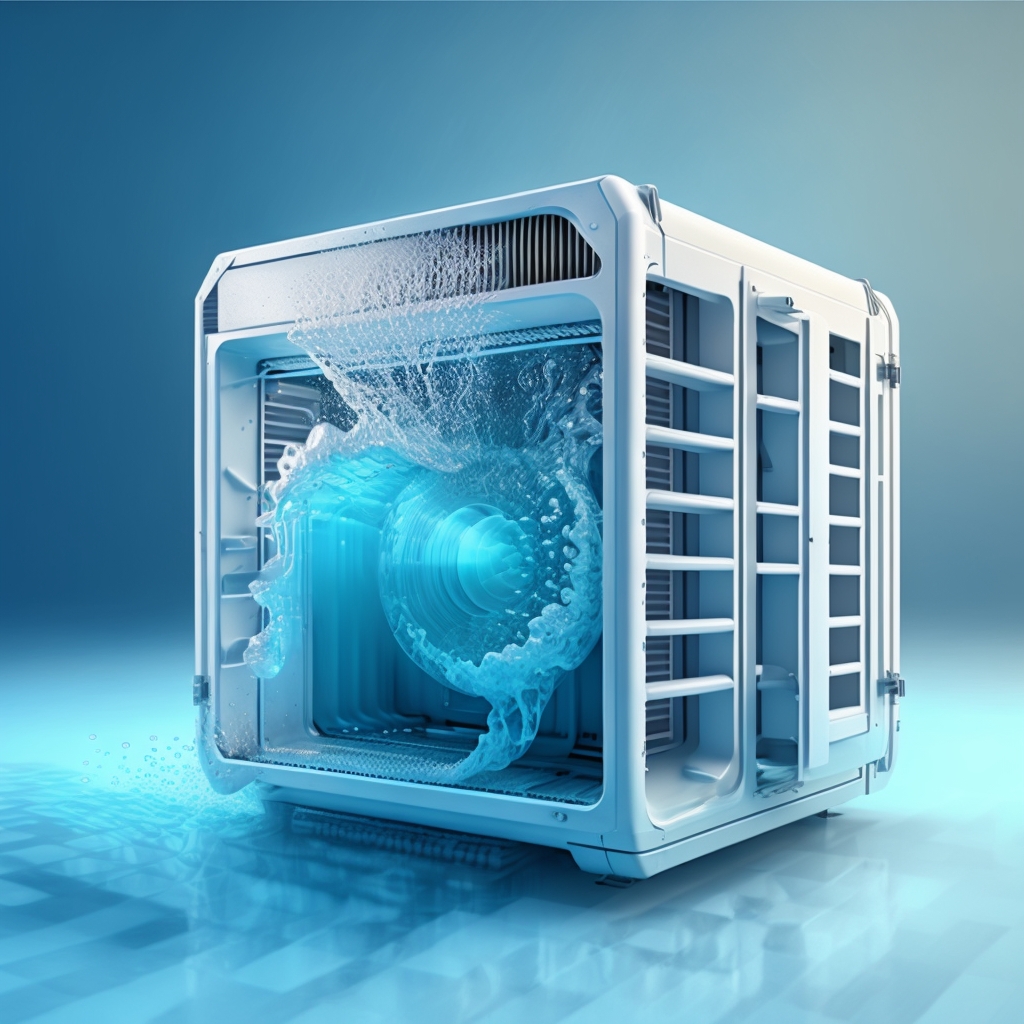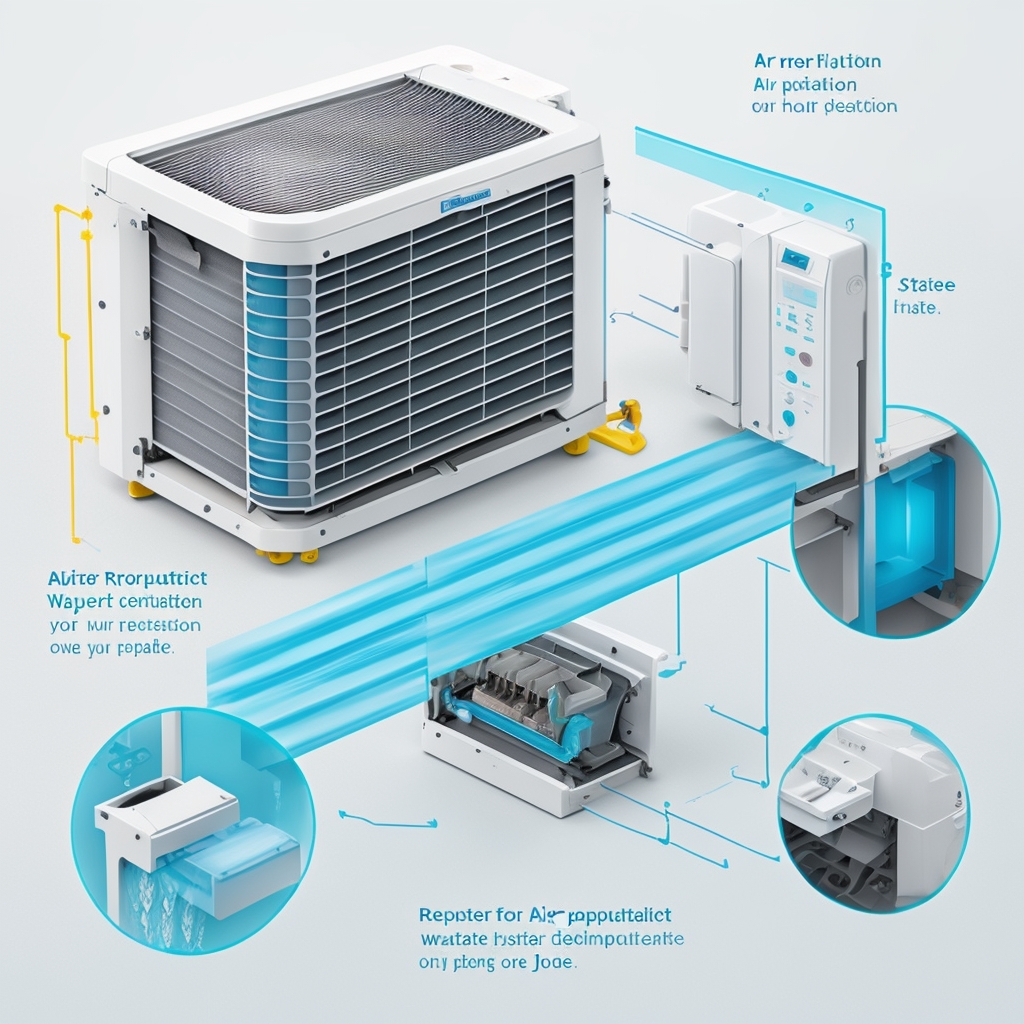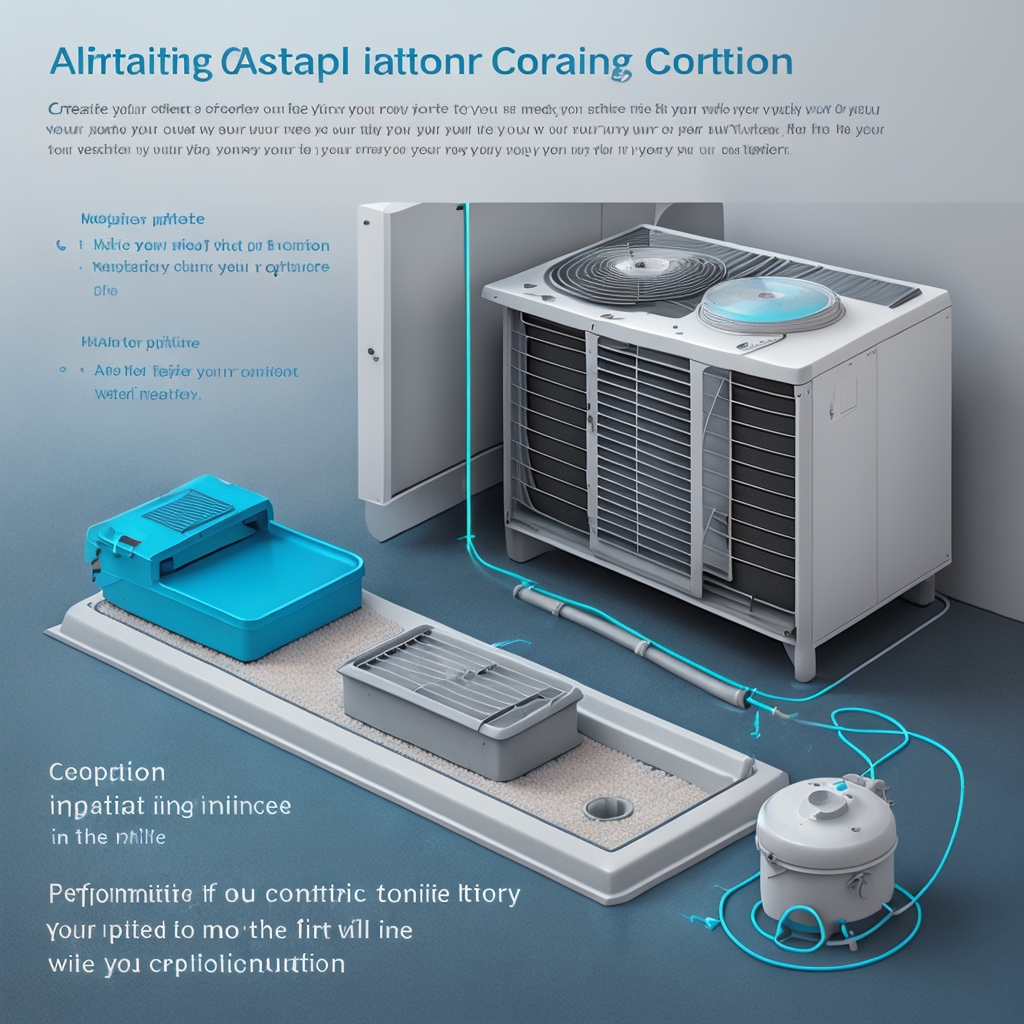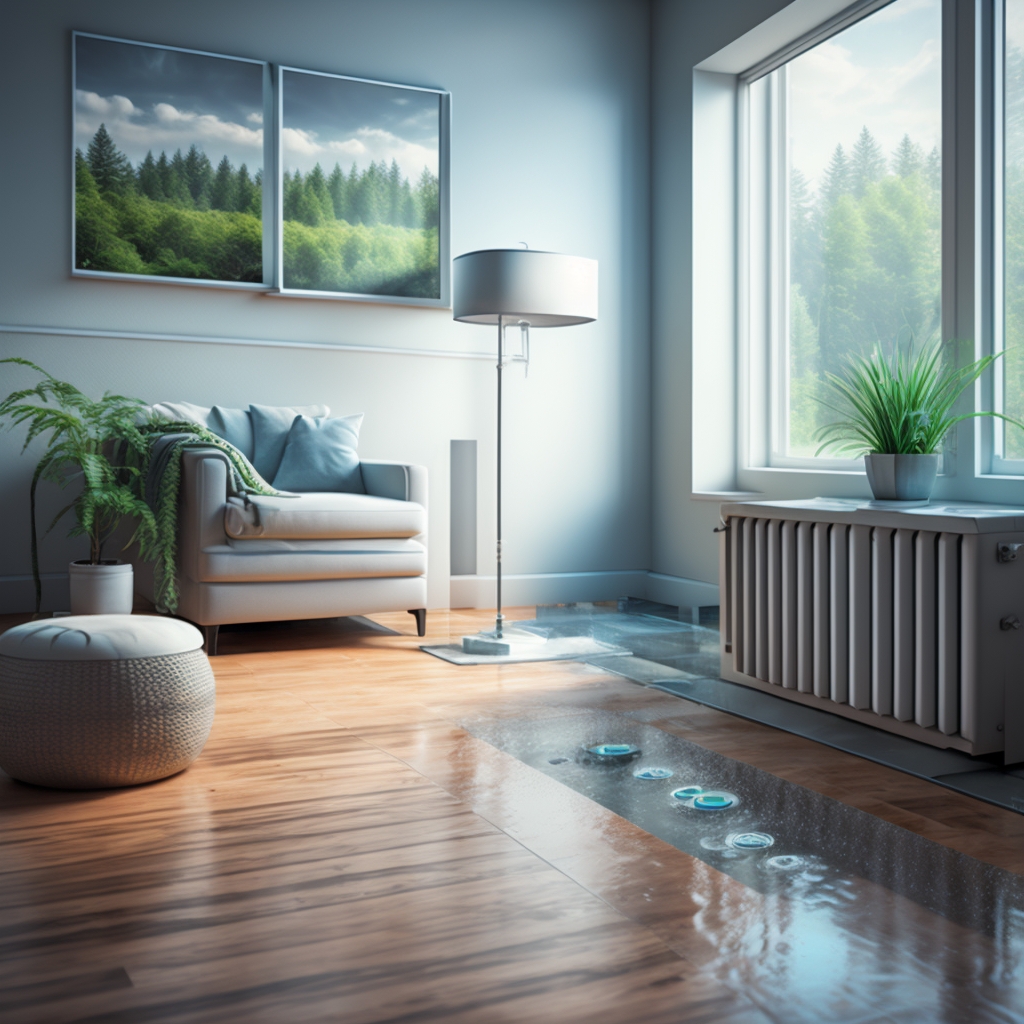What Happens If Your Air Conditioner Isn’t Draining Water & Why You Should Care!

In order to yield chilled and refreshing air, air conditioners facilitate the flow of the room’s air through copper coils, which are filled with a cold refrigerant. This process makes the moisture in the air transform into water, which then trickles down through a drainage system. It’s crucial for the water to effectively drain, preventing it from stagnating within the AC unit. If water is left to accumulate, it could pose a threat to the hygiene and air quality of the unit. Furthermore, it can lead to mould formation, which may exacerbate the problem.
Interestingly, the condensation process perpetually heightens as the air cooling cycle proceeds. This particularly occurs when the surrounding air is highly humid, causing the water to amass at a faster rate.
Given the implications of a malfunctioning drainage system in an AC unit, it’s vital to ensure the proper disposal of the condensed water before it becomes a hospitable environment for bacteriological growth. If your AC unit seems to be retaining water rather than draining it, it could signify an underlying issue with the condensation coil. It would be apt to have this checked by a professional AC technician.
However, if you choose to troubleshoot this issue on your own, there are a few guiding tips that could prove useful.
“Quick & Easy Guide: Solving Your Air Conditioner’s Water Drainage Problem!”

In the event that your air conditioning unit isn’t effectively draining water, proactive measures are crucial to avoid extensive damage. The following are potential sources of the issue and suggestions on how to rectify them.
Disconnected Drain Line: When trying to pinpoint the problem with your air conditioning’s water drainage, a disconnected drainage line is a plausible starting point. The drain line can become disconnected due to the vibration of the machine or possible incorrect installation. If you can confirm the drain line is intact, yet water drainage is not happening, the issue could lie elsewhere.
Obstructed Drain Line: If your air conditioner’s drain line is obstructed, water can’t drain from the unit, with debris from the condensate often the cause. Signs of a blocked air conditioner drain line can include:
– Detecting water in places where it shouldn’t be, notably in the unit’s drain pan.
– Water accumulation near the actual air conditioning machine.
– The emergence of a moldy odor from your AC.
– Visible water damage close to the machine, or on the roof.
An obstructed air conditioner drain line can cause extensive harm, including structural weakening, mold growth, and costly damage to your HVAC or home. It’s crucial to ensure it’s not leaking to avoid substantial repairs.
Declogging an AC Drain Line: Unclogging an air conditioner drain line is fairly straightforward and can be completed in a matter of minutes if you possess a wet/dry vacuum. Ensure safety by switching off the air conditioner before commencing the process. Afterwards, focus on locating the drain line and removing the obstruction with the wet/dry vacuum. If successful, dirty or muddy water begins to drain out.
Alternately, if a wet/dry vacuum is not available, a garden hose can prove to be an efficient substitute. If this doesn’t work, contact a professional for assistance.
Preventing Clogs in the Future: It’s easier to prevent clogs than you may realize. Pouring bleach into the condensate drain impedes the growth of mildew and algae in the drain line, allowing the AC to function optimally with zero clogging issues. Using a high-quality HEPA filter, cleaned and replaced regularly, can also help to trap debris and prevent clogs.
Worn-Out Drain Pan: Older air conditioning units may suffer from a rusty or worn-out drain pan, impeding adequate water drainage. If this is the case, replacement would be the best solution.
Defective Condensate Pump: Water drainage issues could be due to problems with the condensate pump, responsible for directing moisture from the condensate to the AC drain line. If this is the case, professional assistance is advised.
Frozen Evaporator Coil: Freezing of the evaporator coil in an AC unit can result in water damage and leaks. If this is the case, a professional should be called in to fix the problem.
Dirty or Broken Coils: Dirt accumulation or coil damage can impede condensation and proper water flow through the drain lines. Equally, if a freezing coil malfunction occurs, condensation won’t take place, affecting the drainage. Regular AC maintenance can help prevent such issues, and professional help should be sought for resolution.
“Is Your AC Unit Leaking Water? Discover How Often You Should Check It!”

Implementing a monthly routine of inspecting your air conditioner’s condensate drain during the summer months is crucial to ensure efficient water drainage. If correct draining is not observed, potential issues might arise, leading to costly repairs of water damage and overall unit maintenance.
Addressing Your Queries
Is it possible for an air conditioner to double as a dehumidifier?
Certainly! So long as the room’s humidity slightly exceeds the normal range. A dehumidifier is designed to absorb excessive moisture in the air, adjusting it to suitable levels. Correspondingly, since an air conditioner also absorbs a modest amount of moisture from the air, it can somewhat function as a dehumidifier.
How to Solve an Air Conditioner Water Drainage Issue
If your air conditioner is failing to drain water properly, it may be due to a disconnection, blockage, or damage to its water drainage line. This can be rectified with the use of a wet cloth, damp-dry vacuum, or a garden hose. However, if the issue stems from a frozen, dirty, or defective coil, it’s recommended to seek professional assistance. Hiring an air conditioner contractor for regular maintenance checks offers a convenient solution, ensuring constant monitoring and prevention of potential problems, a choice that merits serious consideration.
Additional Insights
Regular maintenance checks can troubleshoot issues before they aggravate, extending the lifespan of your air conditioner unit. Furthermore, utilizing your air conditioner as a dehumidifier during humid spells reduces mould growth, minimising health risks associated with allergies and respiratory problems. Mindful practices and habits related to air conditioner upkeep not only save costs but also ensure consistency, efficiency and reliability of the unit.
